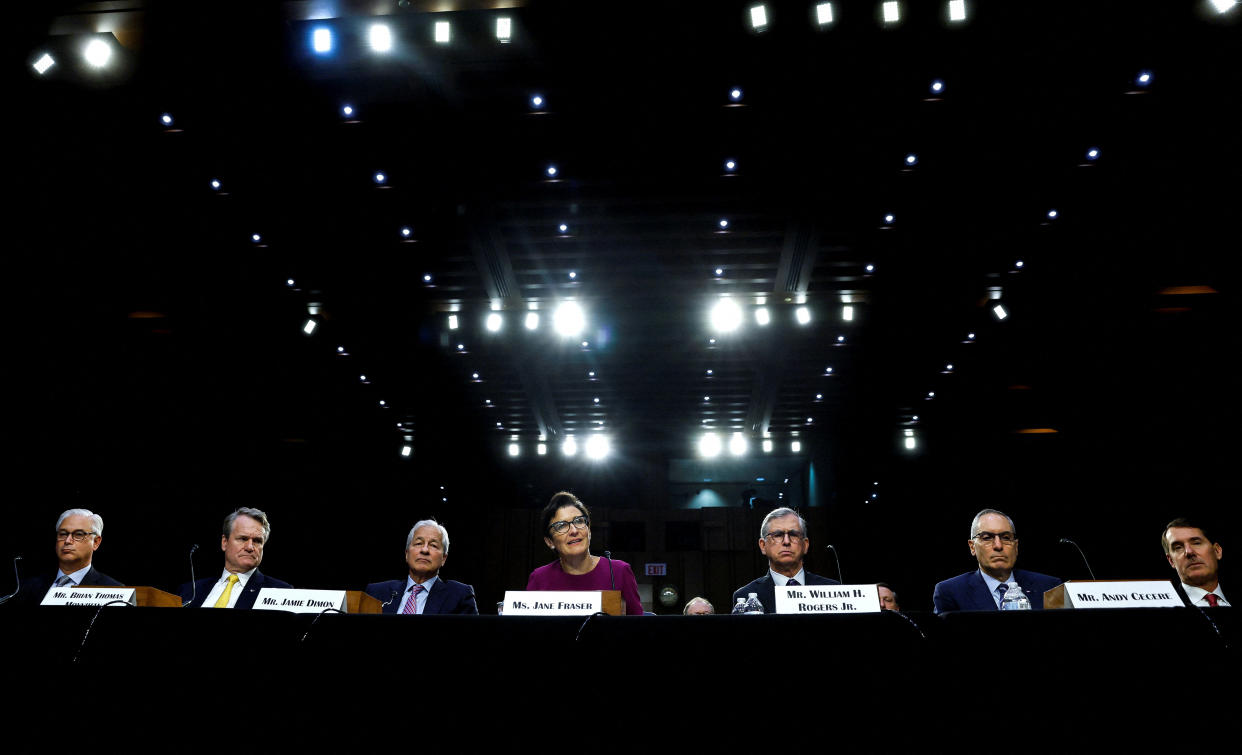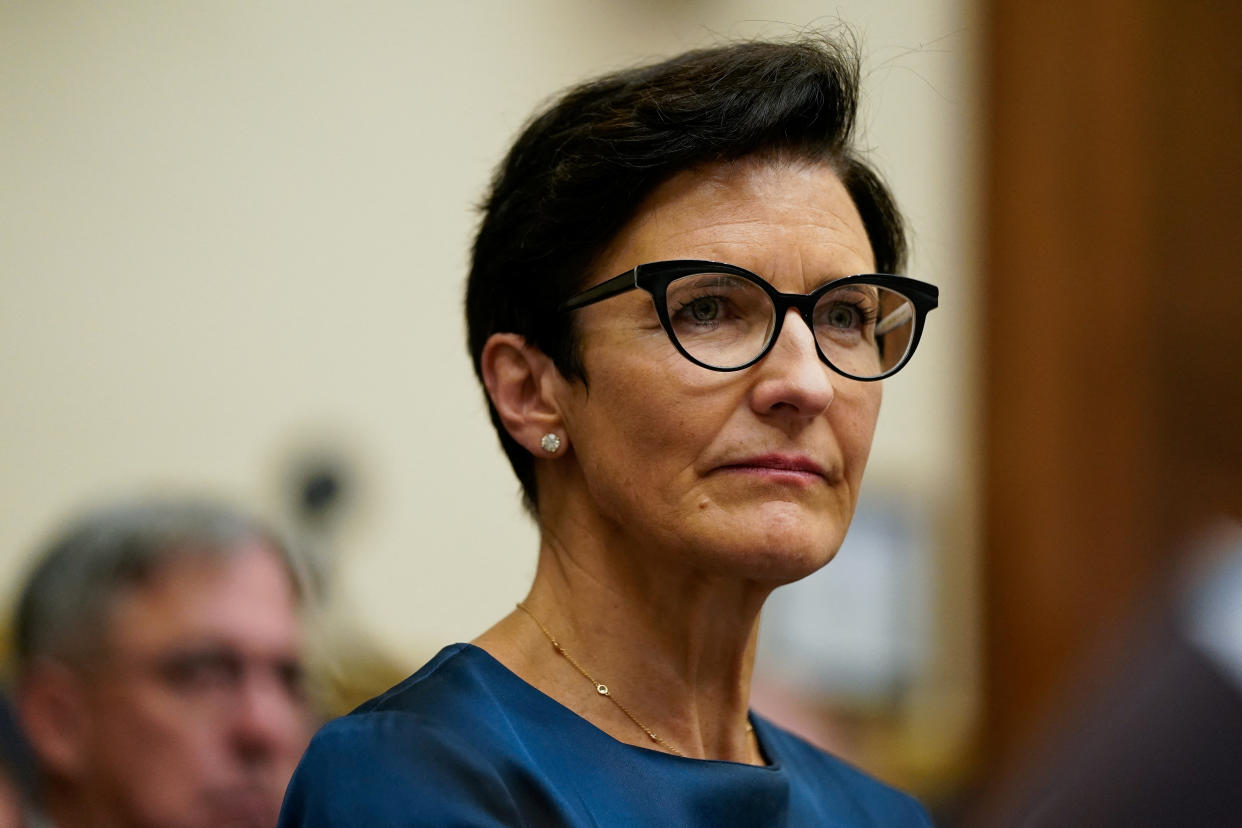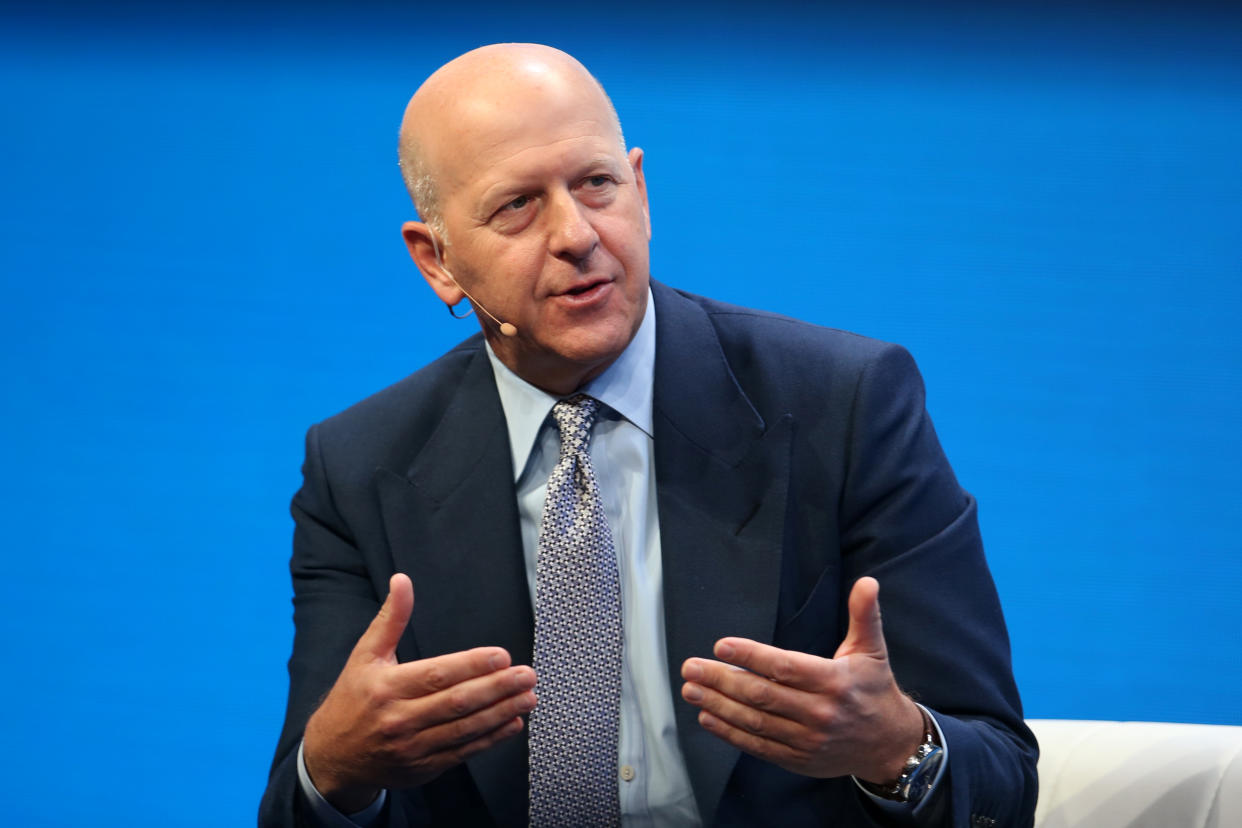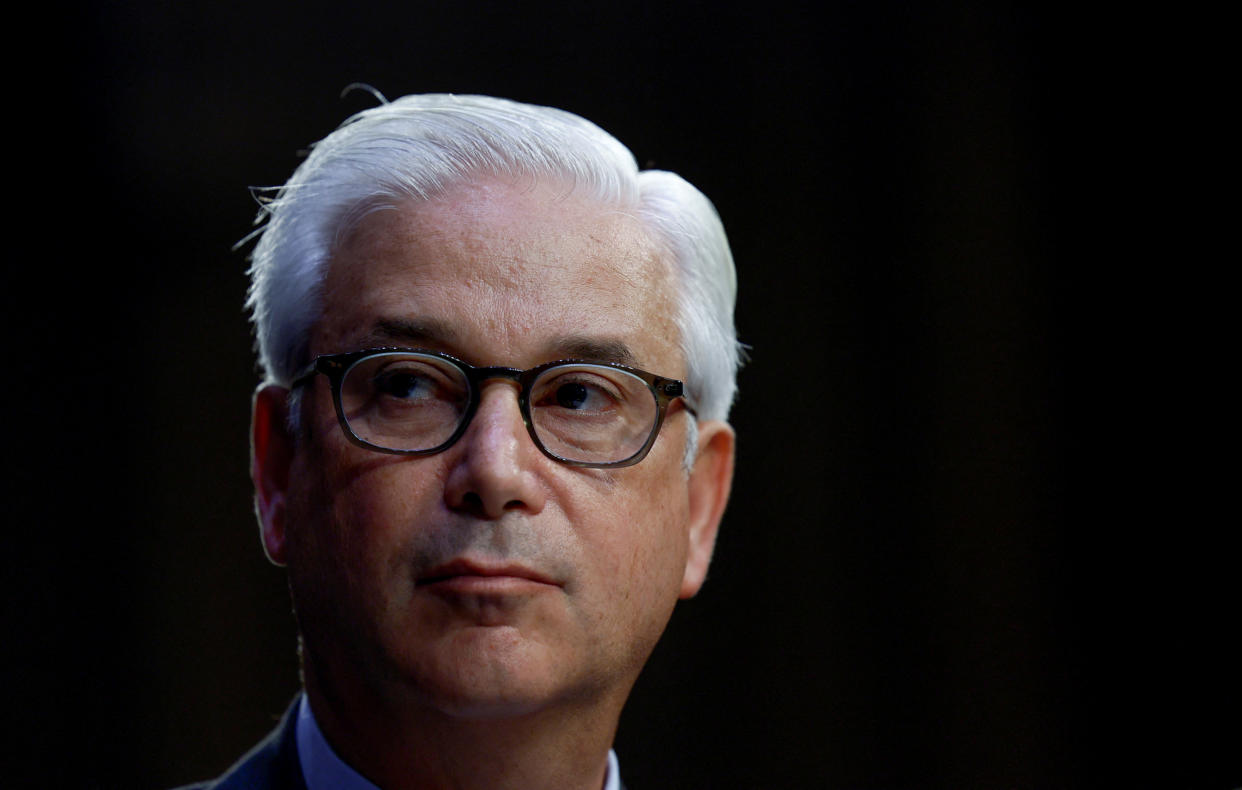The big bank CEOs who are under the most pressure right now
Jane Fraser is eliminating middle managers at Citigroup (C) as she tries to revive the bank's lagging stock price. David Solomon is trying to quell internal unrest at Goldman Sachs (GS) as he refocuses the bank on its core strengths. Charles Scharf is trying to move Wells Fargo (WFC) beyond old legal troubles that won’t go away.
There is a lot of scrutiny surrounding some of the nation’s biggest bank CEOs as they navigate through one of the most challenging periods for their industry since the aftermath of the 2008 financial crisis.
What they all have in common are macro pressures from high interest rates, new capital requirements, and shrinking margins, as well as the sort of political heat they haven’t faced in some time. Bank stocks have notably lagged the S&P 500 this year, even as they've recovered from their lows reached back in May.
In December eight of these big-bank CEOs will appear before the Senate Banking Committee to face the sort of grilling that was commonplace following the 2008 crisis. That includes JPMorgan (JPM) CEO Jamie Dimon, Bank of America (BAC) CEO Brian Moynihan, and Morgan Stanley (MS) CEO James Gorman.

These banks "hold too much power in the economy," Committee Chair and Ohio Democratic Senator Sherrod Brown said in a statement about the December hearing.
Some of these big-bank CEOs are under more immediate heat than others. Here is a look at three:
Citigroup CEO Jane Fraser
Fraser, hoping to revive a stock price that trails rivals and remove decades of bloat, is making what she called the "most consequential" change to how Citi operates in nearly two decades.
Instead of operating with two mega-divisions, she is splitting the bank into five separate units with leaders reporting directly to her. She has made it clear this will mean fewer people.
"We'll be saying goodbye to some very talented and hard-working colleagues," Fraser wrote when she announced the moves in September.
Citi has made sweeping restructuring announcements before, under Fraser’s predecessors.
“Here we go again, one more Citi restructuring,” said Wells Fargo banking analyst Mike Mayo. “Why is this time different?"

But the big difference this time is that Fraser is “removing the middle layer” of management that initially reported to the bank’s CEO, according to a Citi spokesperson.
Fraser took over Citi as CEO in 2021, long after the bank began to lag peers. Since her tenure began, the stock has fallen 30%, twice the decline of any other big bank in that time.
From the beginning of 2023, the stock has declined 22%, continuing the trend. It closed Friday at $40.6, its lowest price in more than three years. The bank's return on tangible equity was 6.8% as of last quarter, lower than its five other big-bank rivals.
The next wave of changes and potential layoffs will be announced sometime in November before Thanksgiving when the 150 to 200 people who report to a member of the executive management team must also make some eliminations.
Citi has not yet provided actual figures for the reduction in head count or expenses but it will likely offer more detail during the release of third quarter earnings on Oct. 13 about how the reorganization will bring down costs. The actual head count number will be released early in 2024.
"We have taken hard, consequential, tough decisions here," Fraser said while speaking at a September conference about the changes. "They are not going to be universally popular within our bank. It's going to make some of our people very uncomfortable. I am absolutely fine with that."
Goldman CEO David Solomon
Perhaps no big-bank CEO has attracted more public scrutiny than Solomon, who this past summer had to announce the firm's lowest quarterly profits in three years. He is wrestling with media reports about his leadership style, job cuts, and reports of partner unrest.
Under Solomon the bank is attempting a tricky retreat from a costly push into consumer lending while it waits out a tepid period of dealmaking.
The good news is that the IPO market does seem to be thawing following a series of new offerings last month involving Goldman. And Goldman's lead board director "seemed very supportive" of Solomon in a recent meeting with Mayo, who published a note last month stating that Solomon "is not going anywhere anytime soon."

The meeting "leads us to conclude that the CEO will stay in his role for at least the medium term,” Mayo said in his note titled "CEO Stays—No Ifs, ands, or buts."
Solomon told investors last month that the Wall Street giant "is making a lot of progress, and we feel very good about where we are" as the company navigates a series of challenges in 2023. He warned of "some impairments and marks in commercial real estate" in the firm's third quarter earnings.
Since Solomon took over Goldman in 2018, the stock has risen 39%, outperforming all of its peers except rival Morgan Stanley.
Since the beginning of 2023, Goldman’s stock is down 10%, underperforming Wells Fargo, Morgan Stanley, and JPMorgan while outperforming Bank of America and Citigroup. Its return on tangible equity is 7% as of last quarter, second worst among six giant banks.
Next year, he added while speaking at a Barclays conference in New York, "should be a better year for sure."
Wells Fargo CEO Charles Scharf
Scharf, who took over Wells Fargo in 2019, is trying to shake the problems of the past. That is proving to be a challenge.
The CEO took over in 2019, well after a fake-accounts scandal roiled the San Francisco lender and damaged its reputation.

The bank is still operating under a 2018 order from the Federal Reserve that placed a cap on its total assets, a sanction designed to punish Wells Fargo for its risk-management miscues.
And there have been new surprises, too. In December of last year it reached a $3.7 billion settlement including customer remediations with the Consumer Financial Protection Bureau on allegations that it illegally overcharged 16 million customers on their auto loans and mortgages.
Since the fake-accounts scandal it has paid out $12.9 billion in penalties, settlements and customer remediations, $235 million of which came in August, according to the left of center watchdog group Good Jobs First.
"We remain at risk of further regulatory actions until the work is complete," Scharf told investors during the bank's second quarter earnings call in July.
Since Scharf took over Wells Fargo in 2019, the stock has fallen 19%, underperforming all but Citigroup. Since the beginning of 2023, Wells Fargo’s stock is down 5%, outperforming all but JPMorgan Chase.
Its return on tangible equity is 10.3% as of last quarter, better than Citigroup and Goldman but trailing JPMorgan, Bank of America, and Morgan Stanley.
"The company continues at a very moderated pace to make improvement, but we don't see a game changer here," said Ken Leon, a big bank analyst with CFRA who recently changed his rating on the stock from Buy to Hold.
Click here for in-depth analysis of the latest stock market news and events moving stock prices.
Read the latest financial and business news from Yahoo Finance
